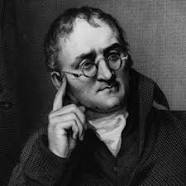Science > Chemistry > Laws of Chemical Combinations > Gay-Lussac’s Law of Combining Volumes In the previous article, we have studied the law of reciprocal proportions. In this article, we shall study Gay-Lussac’s Law of Combining Volumes. A French chemist Joseph L. Gay – Lussac in 1809, put forward this law. Statement : Whenever gases take […]



